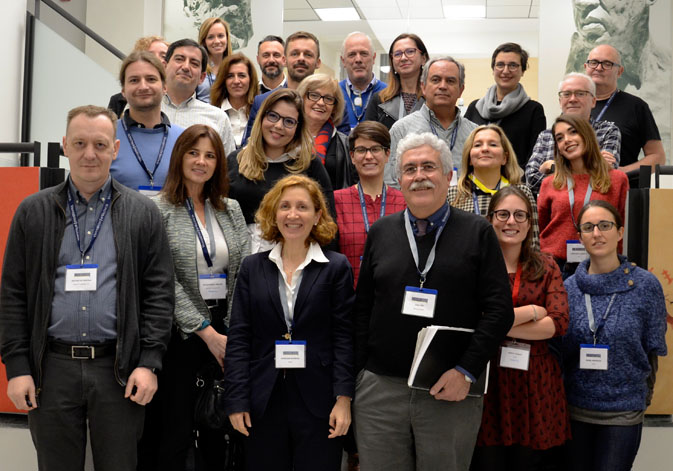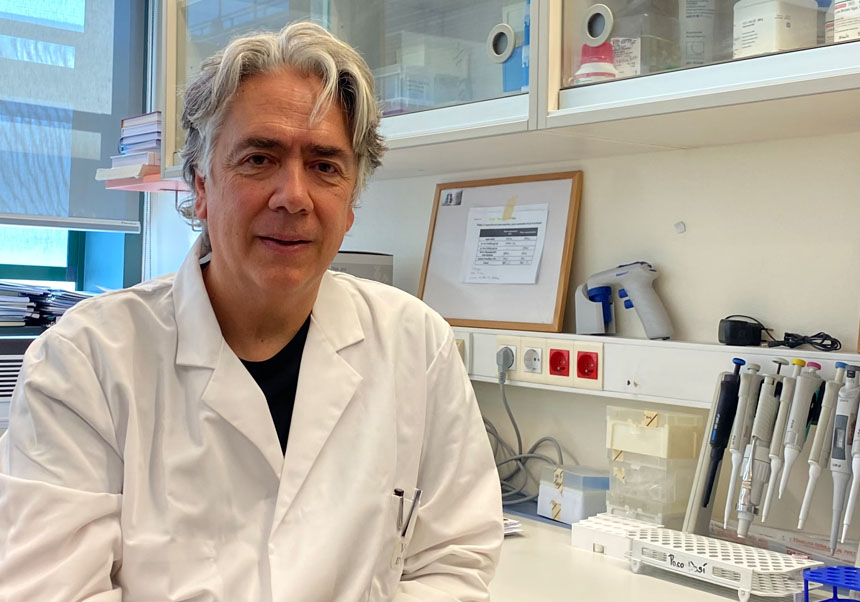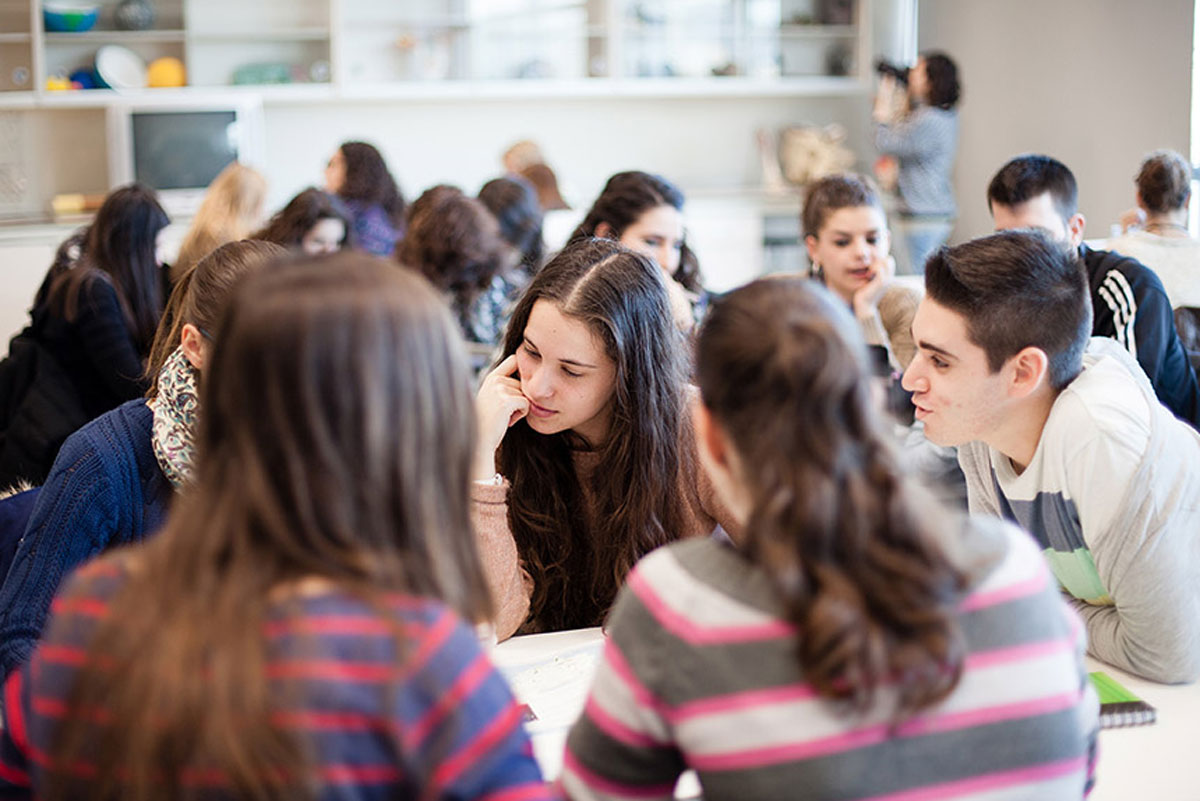The University of Valencia leads a European project on communication in the perception of science through citizen consultations
- Scientific Culture and Innovation Unit
- December 14th, 2018

Carolina Moreno, Professor of Journalism at the University of Valencia, directs the CONCISE project, coordinated by the academic institution and endowed with a funding of almost 1.2 million euros. It analyses the role of communication on the perception and beliefs of citizens of the European Union regarding science. The proposal involves nine entities, including universities and companies, as well as the Spanish Association of Scientific Communication.
The planning, methodology and objectives of the CONCISE (Communication role on perception and beliefs of EU Citizens about Science) project is being defined among its members in a meeting at the House of Science in Valencia that finishes this Friday, December 14.
The importance of the CONCISE project lies in the search for a standard of indicators to improve scientific communication. Through five public citizen consultations, held in five European cities (Lisbon, Valencia, Vicenza, Lodz and Trvana), the opinions of the 100 participating volunteers will be recorded, transcribed and analysed with a corpus linguistic software to identify different markers. These will help the research staff of scientific communication, the political and scientific class, science journalists and the general public, to communicate more directly and effectively, and thus avoid misleading speeches that generate distrust and misunderstandings. The results of CONCISE will be scalable and its methodology can be applied to other scientific subjects and to European countries to promote, both qualitatively and quantitatively, scientific communication throughout Europe.
“I am very happy with the support received from both our institution, the University of Valencia, and by the institutions of each of the consortium members, as well as my close collaborators of the ScienceFlows team, Isabel Mendoza, Empar. Vengut and Lorena Cano, because without the teamwork (collaborative and of coordination), this project would never have gone ahead”, emphasised Carolina Moreno.
CONCISE, with a planned duration of two years, aims to discuss and investigate at European level the role of science communication in society taking into account the media, policy makers, scientific personnel, disseminators or social entities. To do this, it is analysed through what mechanisms (media, social networks, life experiences, beliefs, ideologies, the education system...) EU citizens acquire their scientific knowledge and how these influence beliefs, perceptions and opinions.
The study will interview people from the five countries participating in the project (Portugal, Italy, Slovakia, Poland and Spain), through discussion groups, on four specific topics of current relevance: vaccines, the use of complementary and alternative medicines, climate change and genetically modified organisms. The indicators derived from these results will be published in open access. CONCISE has been successfully evaluated by the European Commission and a funding of 1,198,337.50 euros has been proposed. The project has been presented as Research and Innovation Actions-RIA of the Horizon 2020 European program.
The universities of Valencia, Pompeu Fabra, Trnava (Slovakia), the Institute of Social Sciences of the Universidade da Lisboa (Portugal) and Lodz (Poland) are part of CONCISE. Also participating are the Observa Science in Society (Italy), the Spanish Association of Scientific Communication and the companies FyG Consultores (Spain) and Danmar Computers (Poland).
University students from the EU
In addition, Carolina Moreno has also received funding from the European Commission for the PERSIST_EU project, aimed at proposals that improve ERASMUS higher education in the European Union. PERSIST_EU aims to quantify and measure the value of training and education of university students when making personal decisions related to science, technology, health and the environment.
With a budget of 236,255 euros, PERSIST_EU will develop an ICT tool to assess how the students’ opinions on the use of vaccines, complementary and alternative medicines (CAM), climate change and on genetically modified organisms (transgenics), could be modified after undergoing training modules on the scientific method and the use of epidemiological data. The project also seeks to analyse the regional, gender and cultural differences of university students in relation to these issues, through various activities.
To do this, the project partners will select 100 volunteer university students in each of the five participating countries (Spain, Portugal, Slovakia, Italy and Germany). The criteria will be that 51% are women and 49% are men; with 5% of the population coming from outside the European Union, and students with disabilities (14%).
The universities of Valencia, Trnava (Slovakia), the Institute of Social Sciences of the Universidade de Lisboa (Portugal) and KIT (Germany) are part of PERSIST_EU. Also participating are the Observa Science in Society (Italy), and the companies FyG Consultores (Spain) and Danmar Computers (Poland).
Carolina Moreno
Carolina Moreno Castro is a professor in the Department of Theory of Languages and Communication Sciences of the University of Valencia and the main researcher of ScienceFlows (www.scienceflows.com), a research group formed by a multidisciplinary team from the areas of Health Sciences, Engineering, Education Sciences and Social Sciences. The team participates in training activities, seminars, meetings, conferences, postgraduate programs and doctorates of different Spanish universities, in areas of work that revolve around the representation of science, health, technology and the environment through the media and social networks. Likewise, she works in international teams to improve and advance in the construction of indicators that allow assessing the contemporary scientific culture of citizens.
















